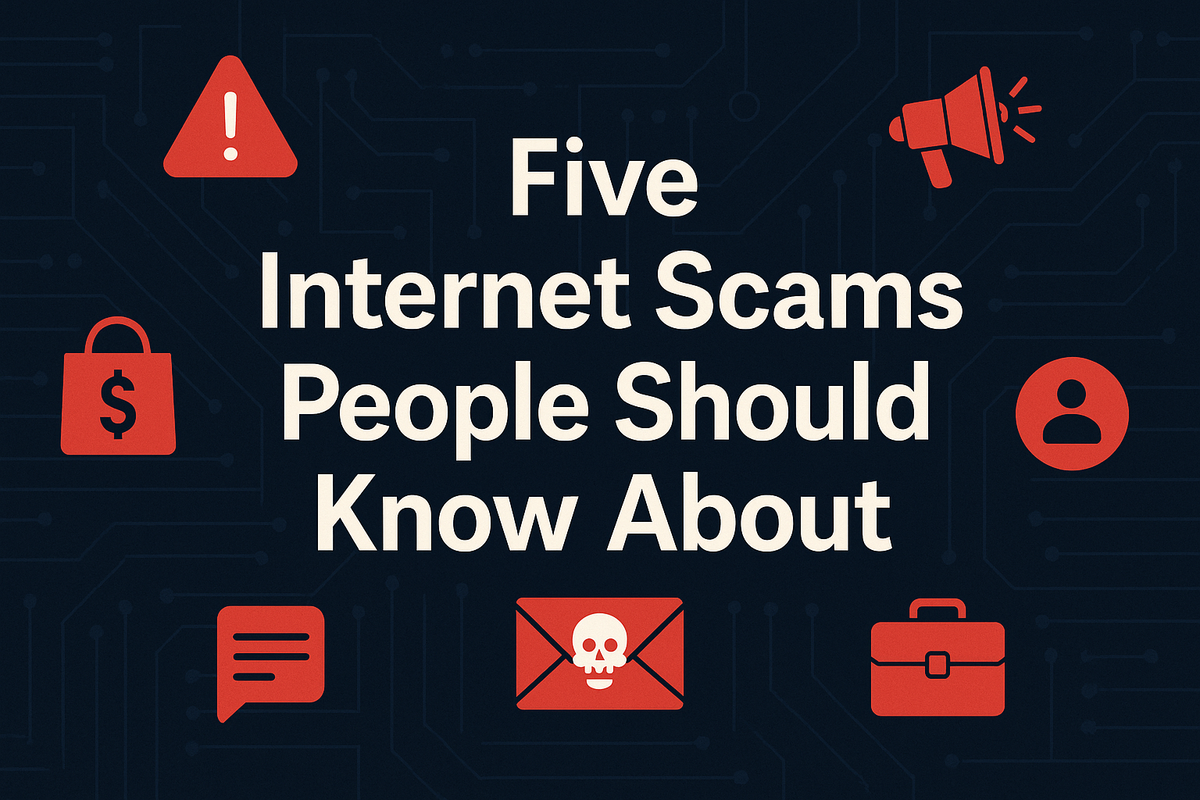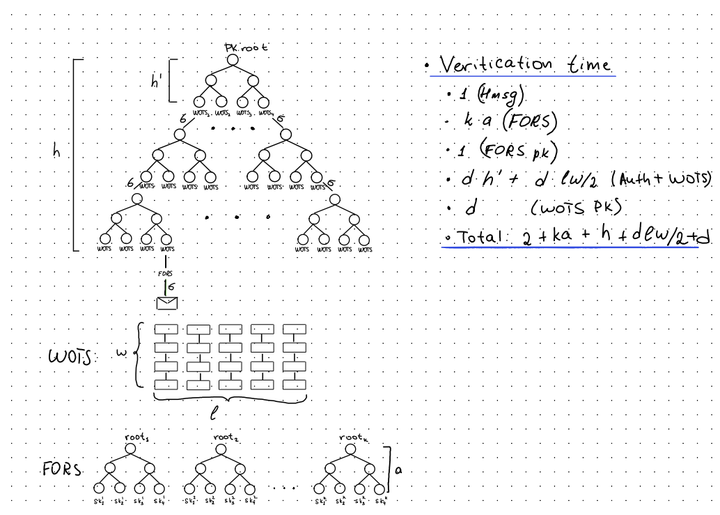5 internet scams you should know about & How to protect yourself
The Hidden War for Your Wallet — and Your Identity

Every day, millions of people are being robbed — not at gunpoint, but through screens.
In 2025, internet scams have exploded into a global, trillion-dollar shadow economy.
From AI-generated voices mimicking loved ones to fake investment platforms that look indistinguishable from real ones, fraud has evolved into a high-tech, psychological battlefield.
The numbers are staggering:
- In 2024 alone, global cyber-crime losses topped $12.5 billion — up nearly 70 % from the year before.
- The average victim of a scam in North America loses over $10,000, while seniors and remote workers are disproportionately targeted.
- Some “pig-butchering” scams stretch for months, emotionally grooming victims before draining life savings.
These aren’t just financial crimes — they’re trust crimes. They weaponize fear, loneliness, and urgency to make us hand over what we’d never freely give: our access, our data, and our autonomy.
And as AI deepfakes, voice clones, and synthetic identities blur the line between real and fake, even the sharpest among us can fall for them.
In this guide, we’ll break down 5 of the most dangerous internet scams operating right now — how they work, the damage they cause, and, most importantly, how you can protect yourself and your community from becoming the next target.
Because in a digital world where deception scales faster than law enforcement can react, awareness is your first line of defense.
Why These Scams Are Different in 2025
Old scams relied on clumsy grammar, suspicious links, and obviously fake stories. But the game has changed.
Today’s scammers use AI voice cloning, realistic deepfake videos, and hijacked social accounts to make their schemes feel indistinguishable from legitimate communication. They don’t just send spam—they study their targets, build relationships, and use psychology to manipulate emotion before they strike.
The result?
A new breed of cybercrime that’s faster, smarter, and more personal than ever before. It’s not just about stealing passwords or bank logins—it’s about infiltrating trust itself.
Below, we’ll break down the five biggest internet scams of 2025, how they work, and what steps you can take to protect yourself, your finances, and your digital sovereignty.
1. Bank/Institution Impersonation & Phishing
What it is
In this scam, fraudsters pretend to be legitimate institutions – banks, government agencies, tech support, or financial services – to trick you into handing over credentials, access codes, or money.
For example, you may receive an urgent message saying your account is compromised, or a “bank representative” calls you asking for your PIN or one-time code.
How it works
- The attacker spoofs or mimics communications (email, SMS, voice call) to appear from a trusted source.
- The message creates urgency: account compromised, legal action, refund due, etc.
- You’re asked to click a link, open an attachment, enter credentials, or reveal a code.
- Once you do, the scammer uses the access (or your credentials) to drain your account, commit identity theft, or install malware.
- Sometimes they combine with other scams – e.g., they ask you to send money via wire/gift cards to “fix the issue”.
- With the rise of generative AI and deepfakes, the impersonation is becoming more sophisticated.
The damage
- According to recent data, losses via bank-transfer or payment scams lead the field.
- Once the code or credentials are handed over, your funds, identity or credit can be compromised.
- For someone focused on digital sovereignty and self-sovereign identity, this is especially dangerous: giving access code = giving away a piece of your autonomy.
- The emotional cost: many victims feel violated, embarrassed, and reluctant to report the incident.
How to protect yourself
- Never provide one-time codes, passwords or PINs to someone who contacts you unsolicited.
- If you receive a message claiming to be from your bank/agency, hang up and call the official number you know (not a number given in the message).
- Use multi-factor authentication (MFA) with a separate device/app (not SMS if possible).
- Educate yourself and your community/prepping circle: treat any urgent email or call with suspicion.
- Keep your software up-to-date and have alerting/monitoring in place (so you can spot unusual account activity swiftly).
- For more advanced tech-sovereign defenders: segregate accounts, use hardware tokens, avoid linking too many services together, and limit the “blast radius” of any credential.
2. Cryptocurrency & Investment Scams (including “Pig-Butchering”)
What it is
These scams revolve around fake investment opportunities — often in crypto or high-yield programs — that promise big returns, lure you in, then vanish with your funds.
A particularly insidious variant is the so-called “Pig Butchering Scam”: scammers build trust (often via romance or long-term chat), then push victims into investing in fake crypto platforms.
How it works
- Victim meets a scammer via a social/dating app, chat group or “investment community”.
- The scammer pretends to invest and show returns, building confidence.
- They direct the victim to a fraudulent investment platform (often crypto wallet connected).
- The victim invests real funds; withdrawals are blocked, or the platform disappears.
- With pig-butchering, the process is long and psychologically manipulative: build trust, then kill (the victim’s funds).
- Crypto makes it worse: irreversible transactions, often cross-border, harder to trace. The “investment” angle makes it seem legitimate.
The damage
- According to the Federal Trade Commission and others: investment scams have a high rate of loss — many victims lose large sums.
- For pig-butchering, losses can be massive; victims often lose both money and emotional trust.
- For someone pursuing self-sovereignty: falling for this undermines your financial autonomy, perhaps compromising your savings, crypto stack or off-grid funding.
- Also leads to long-term psychological scars and sometimes legal/ tax complications.
How to protect yourself
- If it sounds too good to be true (huge returns, short time), it probably is.
- Verify any investment platform: regulator registration, independent reviews, physical address, social proof.
- For crypto transactions: treat them as irreversible; never send money without full due diligence.
- Be very wary of people you met online who push you to invest, especially if they built a “relationship” first.
- Educate your network/ community: talk openly about investment scams, especially within survivalist/sovereign circles where crypto is common.
- Consider segregating “play” money from core savings in your self-sovereign financial stack; limit what you expose to external platforms.
3. Romance & Social-Media Friend Scams
What it is
Scammers exploit emotional vulnerabilities by forging friendships or romantic relationships online to gain trust — then use that connection to extract money, personal data or investments. This category overlaps with other scams (investment, crypto).
How it works
- A scammer creates a fake persona (often attractive, seemingly trustworthy) on dating or social platforms.
- They engage in long chats, share personal stories, build a bond.
- Once trust is strong, they ask for money: maybe to visit you, for an emergency, or for investment advice.
- They may intertwine with other scams (e.g., ask you to invest in crypto as “we’ll build together”).
- When you try to withdraw or confront them, they vanish, or become unreachable.
The damage
- Emotional: victims feel betrayed, ashamed, and often hide their story.
- Financial: many lose thousands, sometimes tens of thousands.
- For autonomy-oriented folks: this impacts trust in networks, digital community platforms, and even your ability to collaborate safely.
- Social networks themselves become vectors for fraud.
How to protect yourself
- On social/dating apps, verify the person: video-call early, check their social footprint, ask for consistency in story.
- Be skeptical if someone you literally just met starts talking investment, sends links, or asks for money.
- Never let emotion override your usual security practices (credential hygiene, independent verification).
- Educate your community: share the stories so others recognise when someone in your network is being targeted.
- Keep your “off-grid” trust network close: if someone new asks for major assistance/investment, bring it to your peer group for analysis.
4. Fake E-Commerce / Non-Delivery / Website Scams
What it is
Fraudulent websites or listings that purport to sell goods or services — often at an attractive price — but either deliver inferior goods, never deliver, or steal your payment/identity data.
How it works
- Scammers set up professional-looking websites or listings (marketplace, social media ads) with deep discounts.
- Victims pay, often via wire, gift-cards, or even cryptocurrency, then either receive nothing or something that’s not as described.
- Sometimes the real purpose is harvesting your payment/credit-card info rather than the item itself.
- With generative tech, the sites look increasingly legit (logos, reviews, endorsements).
The damage
- Financial loss: you pay and get nothing or poor quality.
- Data compromise: you may reveal credit-card numbers, address, maybe even more sensitive data.
- Undermines trust in online commerce – bad for anyone building digital-autonomy e-commerce or prepping-supply chains.
- According to reporting: globally big network of fake e-commerce sites have tricked hundreds of thousands.
How to protect yourself
- Before buying: check domain name (misspellings?), verify seller reviews outside the platform, contact information.
- Prefer secure payment methods with some recourse (credit-card, reputable escrow). Avoid wire transfers or gift cards for unfamiliar sellers.
- For off-grid / prepping suppliers: maintain a vetted list of trusted vendors, share your list with your community.
- Use virtual cards/limited-fund cards for unknown sites (limits exposure).
- Monitor your credit-card statements for suspicious activity.
5. Employment / Job Offer Scams
What it is
Scammers prey on a job-seeker’s ambition by offering bogus job opportunities, fake hiring agencies, or “work from home” gigs that require upfront payment or personal information.
How it works
- Scammer posts a job listing or contacts you (especially via LinkedIn, social media) offering high pay, remote work, few requirements.
- You’re asked to pay a “processing fee”, buy equipment, provide sensitive personal or banking details, “training kit”, etc.
- Or you’re asked to transfer money as part of the “job” (e.g., “You’ll get the money once you send X here first”).
- After the money is sent or data given, the job disappears, or you’re asked for more, or your data is used for identity theft.
The damage
- Direct financial loss (fees, equipment purchases).
- Identity theft: you gave them your SSN/Social Insurance number, bank details.
- Opportunity cost: time and emotional toll of believing you found something real.
- For your content-entrepreneur/survival-community context: people looking for remote income streams are especially vulnerable; one bad hit can affect reputation, finances, and trust.
How to protect yourself
- Treat job offers like you treat investments: if it seems too good to be true, question it.
- Verify the employer: look up website, physical address, verify with third-party (company “About us”, LinkedIn, Better Business Bureau).
- Never pay upfront for a “job”: legitimate employers don’t ask this.
- Don’t give out unnecessary personal info early (bank account, SSN) until verified.
- For your community: host a workshop or checklist on “legit remote work vs scam job” and share with your network.
Final Thoughts
These internet scams pose unique threats: they target not just our money, but our trust, autonomy, identity and connectivity.
They exploit our vulnerabilities in relationships, finances and digital identity.
Key cross-cutting protections
- Build a trusted social circle and peer-network that checks each other’s high-risk decisions (investments, job offers, relationships online).
- Maintain credential hygiene: separate your identity layers, minimise blast radius.
- Use payment methods that offer recourse.
- Educate continuously—your community, your kids, your network.
- When something feels rushed or emotionally charged, stop, pause and verify. Scammers rely on putting you off-balance.
- Embrace decentralisation: keep backups, logs, audit your systems. Consider an “incident plan” for what to do if you or someone in your network gets scammed (e.g., isolating compromised accounts, monitoring for identity theft, community alert).
With the total losses in some jurisdictions ballooning into the billions, the risks are not hypothetical.
By staying vigilant, building strong digital hygiene, and sharing knowledge within your ecosystem, you reduce the chance of being the next victim.



Comments ()